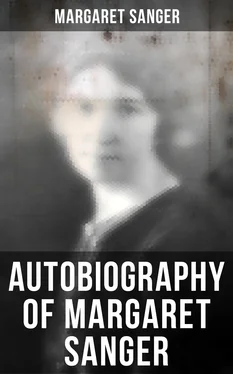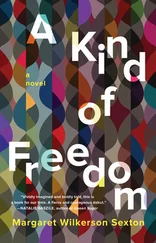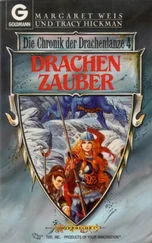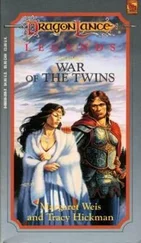Although the first Socialist in the community, father also took single tax in his stride and became the champion and friend of Henry George. Progress and Poverty was one of the latest additions to our meager bookshelf. He laughed and rejoiced when he came upon what to him were meaty sentences, reading them aloud to mother, who accepted them as fine because he said they were fine. The rest of us all had to plow through the book in order, as he said, to “elevate the mind.” To me it still remains one of the dullest ever written.
Mother’s loyalty to father was tested repeatedly. Hers were the responsibilities of feeding and clothing and managing on his income, combined with the earnings of the oldest children. But father’s generosity took no cognizance of fact. Once he was asked to buy a dozen bananas for supper. Instead, he purchased a stalk of fifteen dozen, and on his way home gave every single one to schoolboys and girls playing at recess. On another occasion he showed up with eight of a neighbor’s children; the ninth had been quarantined for diphtheria. They lived with us for two months, crowded into our beds, tucked in between us at the table. Mother welcomed them as she did his other guests. The house was always open. She was not so much social-minded as inherently hospitable. But with her frail body and slim pocketbook, it took courage to smile.
Once only that I can remember did mother’s patience give way. That was when father invaded her realm too drastically and invited Henry George to lecture at the leading hotel—with banquet thrown in. From the money saved for the winter coal he had taken enough to entertain fifty men whose children were well-fed and well-clothed. This was the sole time I ever knew my parents to be at odds, though even then I heard no quarreling words. Whatever happened between them I was not sure, but father spent several days wooing back the smile and light to her eyes.
After Henry George’s visit we had to go without coal most of the winter.
With more pleasure than Progress and Poverty I recall a History of the World, Lalla Rookh, Gulliver’s Travels, and Aesop’s Fables. The last-named touched a sympathetic, philosophical chord in father. “Wolf! Wolf!” and “Sour Grapes” were often used to exemplify the trifling imperfections to which all human beings were subject. For his parables he drew also on the Bible, the most enormous volume you ever laid eyes on, brass bound, with heavy clasps, which was the repository of the family statistics; every birth, marriage, death was entered there. The handbooks to father’s work were the physiologies, one of which was combined with a materia medica. These were especially attractive to me, perhaps because they were illustrated with vivid plates, mostly red and blue, and described the fascinating, unknown interior of the human body.
Neighbors were constantly coming to father for help. “What do you think is the matter with this child?” Even without a thermometer he could tell by feeling the skin whether you were feverish. He prescribed bismuth if the diagnosis were “summer complaint,” castor oil if you had eaten something which had disagreed with you, and always sulphur and molasses in the spring “to clean the blood.”
Father’s cure-all was whiskey—“good whiskey,” which “liberated the spirit.” There was nothing from a deranged system to a depressed mind that it could not fix up. He never drank alone, but no masculine guest ever entered the door or sat down to pass the time of day without his producing the bottle. “Have a little shtimulant?”
The chief value of whiskey to father, however, was medicinal. If mumps turned into a large, ugly abscess, he put the blade of his jackknife in the fire, lanced the gland, and cleaned the wound with whiskey—good whiskey. When my face was swollen with erysipelas, he painted it morning, afternoon, and evening with tincture of iodine; the doctor had so ordered. I was held firmly in place each time this torture was inflicted, and, as soon as released, jumped and ran screaming and howling into the cellar, where I plunged my burning face into a pan of cool buttermilk until the pain subsided. This went on for several days, and I was growing exhausted from the dreaded iodine. Finally father decided to abandon the treatment and substitute good whiskey. Then I recovered.
As necessary to father as the physiologies was a book by the famous phrenologist, Orson Fuller, under whom he had studied. Father believed implicitly that the head was the sculptured expression of the soul. Straight or slanting eyes, a ridge between them, a turned-up nose, full lips, bulges in front of or behind the ears—all these traits had definite meaning for him. A research worker had to be inquisitive, a seeker with more than normal curiosity-bumps; a musician had to have order and time over the eyebrows; a pugilist could not be made but had to have the proper protuberances around the ears.
One of father’s phrases was, “Nature is the perfect sculptor; she is never wrong. If you seem to have made a mistake in reading, it is because you have not read correctly.” He himself seldom made a mistake, and his reputation spread far and wide. Young men in confusion of mind and the customary puzzled, pre-graduation state came from Cornell and other colleges to consult him about their careers. He examined heads and faces, told them where he thought their true vocations lay, and supplemented this advice later with voluminous interested correspondence. I could not help picking up his principles and some of his ardor, though I have never been able to analyze character so well. No amount of front or salesmanship could divert him, whereas I have often been taken in by a person’s self-confidence and estimation of himself.
In the predominantly Roman Catholic community of Corning, set crosses in the cemeteries were the rule for the poor and, before they went out of style, angels in various poses for the rich. I used to watch father at work. The rough, penciled sketch indicated little; even less did the first unshaped block of stone. He played with the hard, unyielding marble as though it were clay, making a tiny chip for a mouth, which grew rounder and rounder. A face then emerged, a shoulder, a sweep of drapery, praying hands, until finally the whole stood complete with wings and halo.
Although Catholics were father’s best patrons, by nature and upbringing he deplored their dogma. He joined the Knights of Labor, who were agitating against the influx of unskilled immigrants from Catholic countries, and this did not endear him to his clientele. Still less did his espousal of Colonel Robert G. Ingersoll, a man after his own heart, whose works he had eagerly studied and used as texts. Once when the challenger was sounding a ringing defiance in near-by towns, father extended an invitation to speak in Corning and enlighten it. He collected subscriptions to pay for the only hall in town, owned by Father Coghlan. A notice was inserted in the paper that the meeting would be held the following Sunday, but chiefly the news spread by word of mouth. “Better come. Tell all your friends.”
Sunday afternoon arrived, and father escorted “Colonel Bob” from the hotel to the hall, I trotting by his side. We pushed through the waiting crowd, but shut doors stared silently and reprovingly—word had also reached Father Coghlan.
Some were there to hear and learn, others to denounce. Antipathies between the two suddenly exploded in action. Tomatoes, apples, and cabbage stumps began to fly. This was my first experience of rage directed against those holding views which were contrary to accepted ones. It was my first, but by no means my last. I was to encounter it many times, and always with the same bewilderment and disdain. My father apparently felt only the disdain. Resolutely he announced the meeting would take place in the woods near our home an hour later, then led Ingersoll and the “flock” through the streets. I trudged along again, my small hand clasped in his, my head held just as high.
Читать дальше












